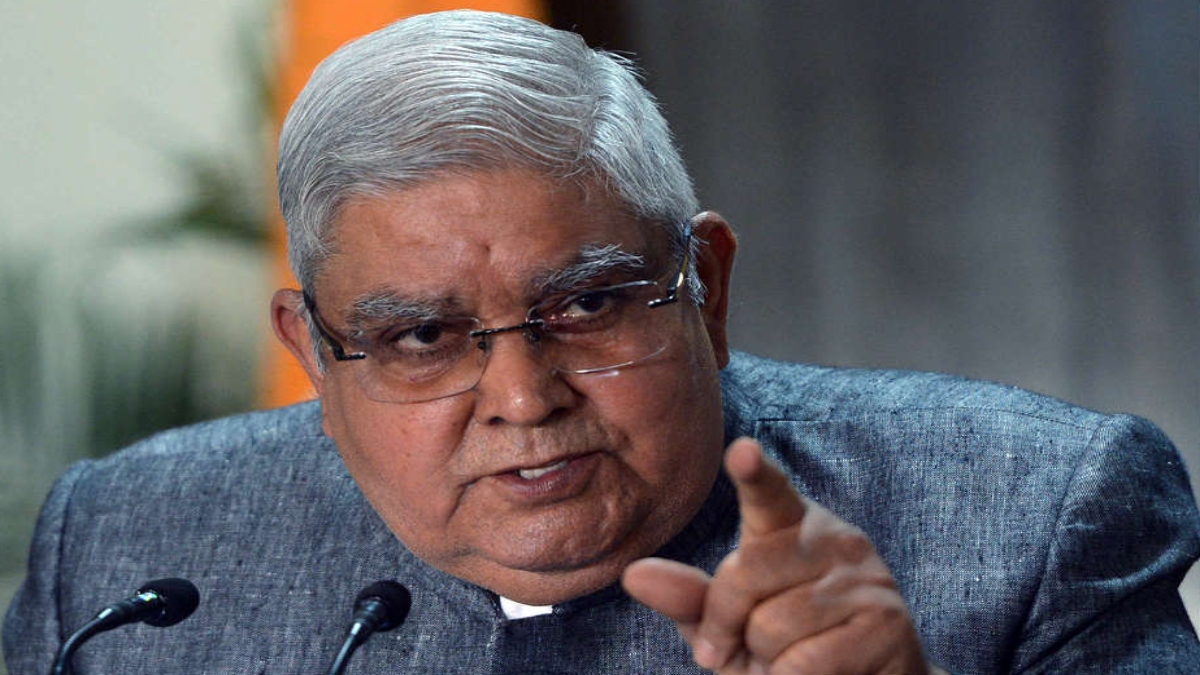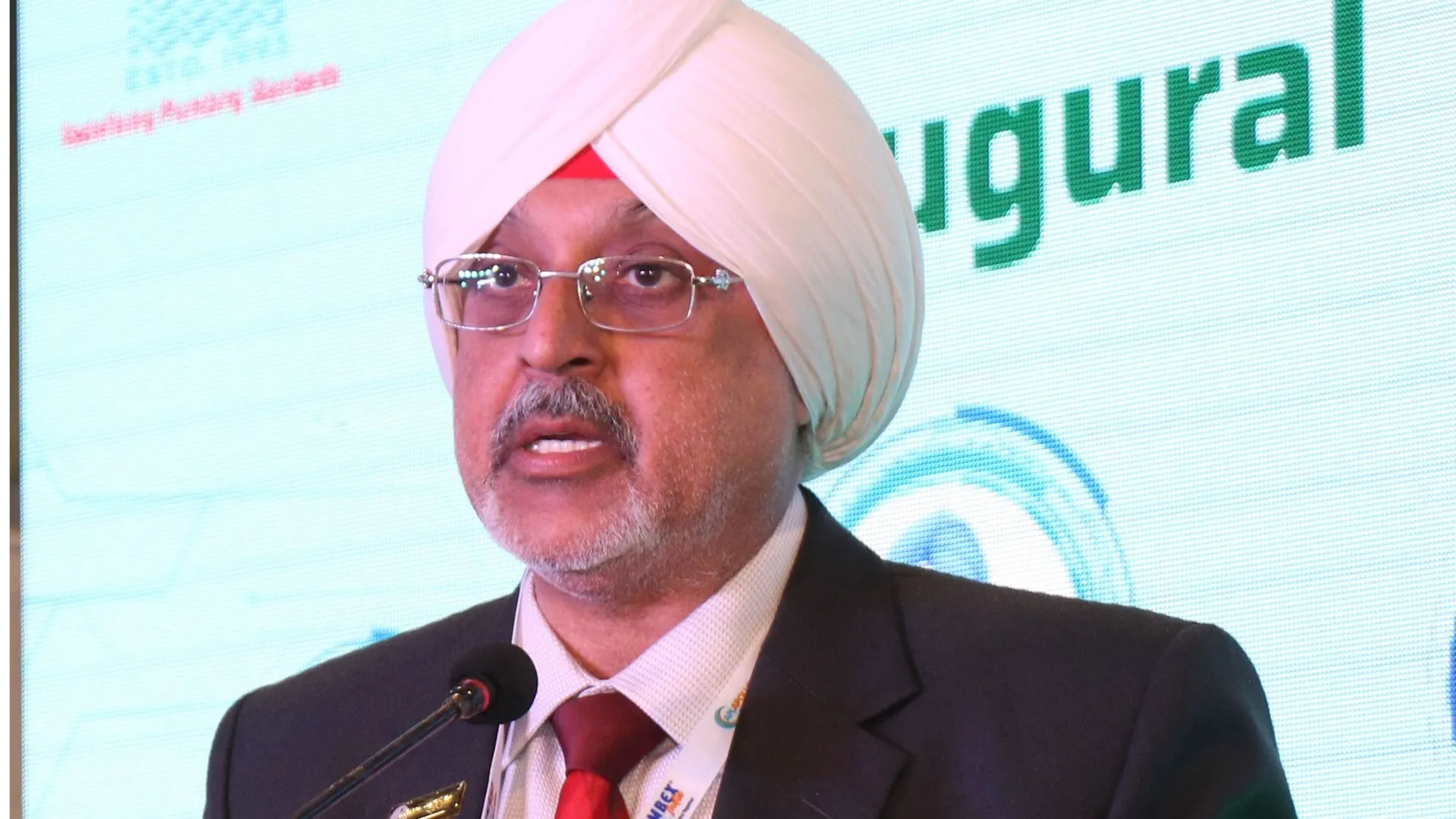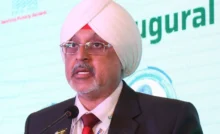In a very significant development, we saw how as recently as on February 18, 2022, the Calcutta High Court in a learned, laudable, landmark and latest judgment titled Ramaprasad Sarkar v. Union of India in WPA (P) 58 of 2022 and 2022 LiveLaw (Cal) 44 took a pragmatic stand and dismissed a PIL praying for a direction to the Central government to remove Jagdeep Dhankhar as the Governor of West Bengal, claiming that he was acting as the ‘mouthpiece of the Bharatiya Janata Party’. The Bench comprising of Chief Justice Prakash Shrivastava and Justice Rajrashi Bharadwaj placed reliance on Article 361 of the Constitution which stipulates that a Governor cannot be made answerable to any Court for the exercise and performance of the powers and duties of his office or for any act done or purporting to be done by him in the exercise and performance of those powers and duties. While dismissing the PIL, the Court underscored that it is not satisfied with the material placed on record and thus ruled that there is no ground to issue any directions that have been prayed for.
To start with, this brief, brilliant, bold and balanced judgment authored by Chief Justice Prakash Shrivastava for a Bench of Calcutta High Court comprising of himself and Justice Rajarshi Bharadwaj first and foremost puts forth in para 1 that, “Petitioner, a practicing advocate of this Court, has prayed for a direction to the respondent No. 1, Union of India, to explain the reason for not removing the present Governor of the State of West Bengal who according to the petitioner is destroying the spirit of federalism. A further prayer has been made to direct the respondent No. 1 not to use the Governor as political tool against the Government of West Bengal.”
While dwelling on the allegations made in petition, the Bench then lays bare in para 2 that, “The allegation made in the petition is that the present Governor of the State of West Bengal makes critical comments against the State and is destroying the dignity of the Governor’s position and his actions are creating many problems in the State. It is alleged that the Governor is bypassing the State Council of Ministers and dictating directly to the State Officers and is tweeting almost every day. It is further alleged that Governor being the formal head, is bound by the aid and advice of the Council of Ministers, therefore, his observations about the functioning of various ministries under the State Government carry deeper political repercussions and they have the potential to affect the federal structure and amount to a misuse of political office.”
On the one hand, the Bench then states in para 3 that, “Submission of learned Counsel for the petitioner is that the Governor, having regard to his conduct, is required to be removed and that a direction is required to be issued to the respondent No. 1 not to use the Governor as a tool for political activities. He has placed reliance upon the judgment of the Hon’ble Supreme Court in the matter of B.P. Singhal vs. Union of India and Another reported in (2010) 6 SCC 331 in support of his plea.”
On the other hand, the Bench then also points out in para 4 that, “Learned Solicitor General appearing for the respondent No. 1 has vehemently opposed the petition and has submitted that such a petition is liable to be dismissed with exemplary cost and that the writ petition cannot be maintained in respect of the functioning of the Governor or for his removal.”
Frankly speaking, the Bench then envisages in para 5 that, “We have heard the learned Counsel for the parties and perused the record. The scope of maintaining the petition for issuing a Writ of Mandamus as prayed in the present petition is very limited. Governor of a State is appointed under Article 155 of the Constitution of India and in terms of Article 156 of the Constitution he holds the office during the pleasure of the President. Article 156 provides that:
“156. Term of office of Governor.–(1) The Governor shall hold office during the pleasure of the President.
(2) The Governor may, by writing under his hand addressed to the President, resign his office.
(3) Subject to the foregoing provisions of this article, a Governor shall hold office for a term of five years from the date on which he enters upon his office:
Provided that a Governor shall, notwithstanding the expiration of his term, continue to hold office until his successor enters upon his office.””
Needless to say, the Bench then enunciates in para 6 that, “Under Article 361 of the Constitution protection has been extended to the Governor by providing that he is not answerable to any Court for the exercise and performance of the powers and duties of his office or for any act done or purporting to be done by him in the exercise and performance of his powers and duties. Article 361 provides as under:
361. Protection of President and Governors and Rajpramukhs.–(1) The President, or the Governor or Rajpramukh of a State, shall not be answerable to any court for the exercise and performance of the powers and duties of his office or for any act done or purporting to be done by him in the exercise and performance of those powers and duties:
Provided that the conduct of the President may be brought under review by any court, tribunal or body appointed or designated by either House of Parliament for the investigation of a charge under article 61:
Provided further that nothing in this clause shall be construed as restricting the right of any person to bring appropriate proceedings against the Government of India or the Government of a State.
(2) No criminal proceedings whatsoever shall be instituted or continued against the President, or the Governor of a State, in any court during his term of office.
(3) No process for the arrest or imprisonment of the President, or the Governor of a State, shall issue from any court during his term of office.
(4) No civil proceedings in which relief is claimed against the President, or the Governor of a State, shall be instituted during his term of office in any court in respect of any act done or purporting to be done by him in his personal capacity, whether before or after he entered upon his office as President, or as Governor of such State, until the expiration of two months next after notice in writing has been delivered to the President or the Governor, as the case may be, or left at his office stating the nature of the proceedings, the cause of action therefore, the name, description and place of residence of the party by whom such proceedings are to be instituted and the relief which he claims.””
Most fundamentally, the Bench then minces no words to postulate in para 7 that, “Under Article 361 there is complete bar to issue notice to the Governor in any Court proceeding and make him answerable to act done or purported to be done by him in performance of his power and duties. In view of the complete bar Governor cannot be made answerable to the Court in respect of even charge of malafides but there are certain limitations to such immunity which have been noted by the Supreme Court in judgment noted infra. Hon’ble Supreme Court in the matter of Rameshwar Prasad and others (VI) vs. Union of India and Another, (2006) 2 SCC 1 considering the scope of Article 361 of the Constitution has held that:
“173. A plain reading of the aforesaid article shows that there is a complete bar to the impleading and issue of notice to the President or the Governor inasmuch as they are not answerable to any court for the exercise and performance of their powers and duties. Most of the actions are taken on the aid and advice of the Council of Ministers. The personal immunity from answerability provided in Article 361 does not bar the challenge that may be made to their actions. Under law, such actions including those actions where the challenge may be based on the allegations of mala fides are required to be defended by the Union of India or the State, as the case may be. Even in cases where personal mala fides are alleged and established, it would not be open to the Governments to urge that the same cannot be satisfactorily answered because of the immunity granted. In such an eventuality, it is for the respondent defending the action to satisfy the Court either on the basis of the material on record or even filing the affidavit of the person against whom such allegation of personal mala fides are made. Article 361 does not bar filing of an affidavit if one wants to file on his own. The bar is only against the power of the Court to issue notice or making the President or the Governor answerable. In view of the bar, the Court cannot issue direction to the President or the Governor for even filing of affidavit to assist the Court. Filing of an affidavit on one’s own volition is one thing than the issue of direction by the Court to file an affidavit. The personal immunity under Article 361(1) is complete and, therefore, there is no question of the President or the Governor being made answerable to the Court in respect of even charges of mala fides.””
Be it noted, the Bench then observes in para 8 that, “Subsequently in the matter of Nabam Rebia vs. Registrar General, Gauhati High Court and Ors., 2016 SCC OnLine SC 94, where on the issue of proclamation of Article 361 of the Constitution notice was issued to the Governor, Hon’ble Supreme Court taking note of the earlier judgment in the case of Rameshwar Prasad (supra) had recalled the notice. Similar issue had came up to the Division Bench of Madras High Court in the matter of M. Kannadasan vs. Union of India rep. by Ministry of Home Affairs and Another, 2020 SCC OnLine Mad 8 wherein the writ petition was filed seeking direction to the Union of India to remove the respondent No. 2 therein from the post of Governor of State of Tamil Nadu for his alleged failure act in accordance with the provisions of the Constitution. The Division Bench after taking note of the earlier Division Bench judgment of the Madras High Court and the judgment of the Hon’ble Supreme Court had refused to entertain writ petition by holding that the High Court is precluded from issuing any positive direction to the Union of India to take steps and place necessary material before His Excellency President of India for removal of Governor. Madras High Court in the case of M. Kannadasan (supra) has held that:
“11. In S. Nalini v. Governor of Tamil Nadu [(2019) 6 MLJ 129], one of the convicts in Rajiv Gandhi assassination case, namely Tmt. Nalini filed a Writ of Mandamus directing the first respondent therein, namely Governor of Tamil Nadu to countersign the proposal of the second respondent/State of Tamil Nadu made on 09.09.2018 and to release her immediately. The Registry of this Court expressed doubt as to the maintainability of the writ petition and accordingly, it was listed “For Maintainability” before a Division Bench of this Court. The Division Bench of this Court consisting of Hon’ble Mr. Justice R. Subbiah and Hon’ble Mr. Justice C. Saravanan had taken into consideration the following decisions,
(i) K.A. Mathialagan v. Governor of Tamil Nadu [(1973) 1 MLJ 131 – Para 8]
(ii) Nabam Rebia v. Registrar General, Gauhati High Court [2016 SCC OnLine SC 94 – Paras 8, 15]
(iii) Rameshwar Prasad v. Union of India [LNIND 2006 SC 1219 – Paras 7, 9, 14, 15]
(iv) Shri Pratap Sing Raojirao Rane v. Governor of Goa [AIR 1999 BOM 53 – Para 8]
(v) State of Rajasthan v. Union of India [LNIND 1977 SC 214 – Para 10]
as well as the scope and purport of Article 361 of the Constitution of India and held as follows in paras 16 and 17:
“16. It is to be stated that Article 361 of the Constitution of India insulates the Governor of the State from being questioned or make him answerable before any Court with respect to the discharge of his official duties. Article 361 of The Constitution of India gives complete immunity and privilege to the Governor of the State in discharge of his constitutional obligation. Therefore, questioning the discharge of act of the Governor or failure to discharge his constitutional obligations cannot be subjected to judicial scrutiny under Article 226 of The Constitution of India by arraying him as a party to the writ proceedings. In this case, even assuming that the Governor of the State did not take into account the Advice given by the Council of the Ministers, it will not be a ground for the petitioner to file this writ petition and contend that the protection of life and personal liberty guaranteed under Article 21 of the Constitution of India has been infringed. The privileges and immunity conferred on the Governor of the State under Article 361 of the Constitution of India is a clear bar for the petitioner to file the present writ petition. The Governor of the State cannot therefore be equated with the instrumentalities of the Government enumerated under Article 12 of the Constitution of India who are amenable to the jurisdiction of this Court under Article 226 of the Constitution of India.
17. Thus, in the light of the above discussions and decisions of the Supreme Court, it is abundantly clear that the Governor of the State is insulated from being questioned or made answerable to the Courts with respect to discharge of his constitutional functions and duties. The immunity so conferred on the Governor of the State is unfettered and it cannot be intruded by this Court in exercise of the power conferred under Article 226 of The Constitution of India. The personal immunity under Article 361 of the Constitution of India is clear and specific in not to proceed against the President or a Governor of a State, and therefore, the present writ petition, arraying the Governor of the State as respondent No. 1 is not maintainable.””
On a pragmatic note, the Bench then forthrightly holds in para 12 that, “In the light of the well settled position of law, this Court is precluded from issuing any positive direction to the first respondent to take appropriate steps and place necessary materials before His Excellency, President of India for removal of the Governor of Tamil Nadu in the light of the observations made in Para Nos. 81 of the judgment in B.P. Singhal case (cited supra), that “exercise of pleasure by the President under Article 156(1) of the Constitution of India should be on the advise of the Council of Ministers under Article 74(1)” and that apart, in the light of the observations made in Paras 82 and 83(iv) of the said judgment that “the decision for withdrawal of President’s pleasure under Article 156(1) is open to judicial review but in a very limited extent and as there is no need to assign reasons, any removal as a consequence of withdrawal of pleasure will be assumed to be valid and will be open to only a limited judicial review”. It was observed in para 83 that “the Court will not interfere merely on the ground that a different view is possible or that the material or reasons are insufficient” and therefore, this Court is not inclined to entertain this writ petition.””
Quite remarkably, the Bench then hastens to add in para 9 that, “So far as the judgment in the matter of B.P. Singhal vs. Union of India and Another, reported in (2010) 6 SCC 331 relied upon by the Counsel for the petitioner is concerned, that was a case where the decision of the President of India to remove the Governor was challenged and in that background Supreme Court had held that Governor is not an employee of the Union of India nor the agent of the party in power nor required to act under the dictates of the political parties and that Governors are expected to be apolitical, discharging purely constitutional functions, irrespective of their earlier political background. While considering the issue of correctness of the decision to remove the Governor under Article 156 of the Constitution, Hon’ble Supreme Court held that as there is no need to assign reasons and that any removal as a consequence of withdrawal of the pleasure is assumed to be valid and is open to only limited judicial review. It has been clarified that such judicial review is permissible when a case is made out on the ground of arbitrariness and malafides. A consensus to the extent that a Governor can be removed only for valid reasons, and that physical and mental incapacity, corruption and behaviour unbecoming of a Governor are the valid grounds for removal has been taken note of.”
Finally, the Bench then concludes by holding in para 10 that, “Examining the present case in the light of above pronouncements and limited scope of judicial review we find that the writ petition is based upon some tweets, one letter of the Governor and the publications made by one newspaper. We are not satisfied that the material placed along with the petition furnishing any ground to entertain the petition or to issue any such direction to the respondent No. 1 as prayed in the petition. Hence, the petition is dismissed.”
All told, Calcutta High Court has assigned real, robust and rational reasons for dismissing the PIL that sought the dismissal of West Bengal Governor Jagdeep Dhankhar. No denying or disputing it in anyway! We have already discussed them exhaustively along with relevant case laws which makes this judgment commendable, convincing and courageous!
Sanjeev Sirohi, Advocate
Examining the present case in the light of above pronouncements and limited scope of judicial review we find that the writ petition is based upon some tweets, one letter of the Governor and the publications made by one newspaper. We are not satisfied that the material placed along with the petition furnishing any ground to entertain the petition or to issue any such direction to the respondent No. 1 as prayed in the petition. Hence, the petition is dismissed.










